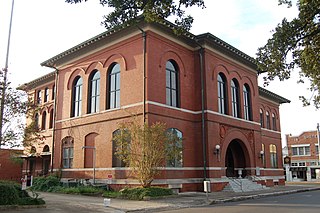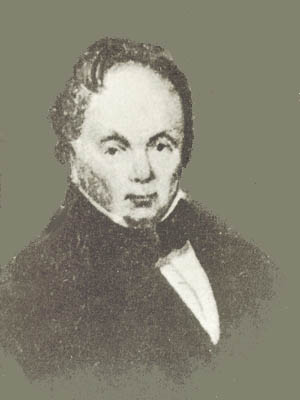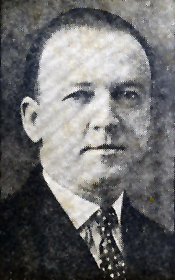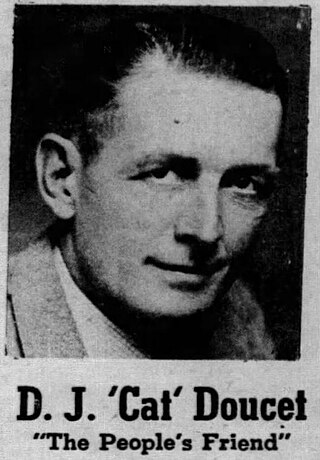Related Research Articles

St. Landry Parish is a parish located in the U.S. state of Louisiana. As of the 2020 Census, the population was 82,540. The parish seat is Opelousas. The parish was established in 1807.

Evangeline Parish is a parish located in the U.S. state of Louisiana. As of the 2020 census, the population was 32,350. The parish seat is Ville Platte.

Acadia Parish is a parish located in the U.S. state of Louisiana. At the 2020 U.S. census, the population was 57,576. The parish seat is Crowley. The parish was founded from parts of St. Landry Parish in 1886, and later an election was held to determine the parish seat, ending when Crowley beat Rayne and Prairie Hayes. Acadia Parish is included in the Lafayette metropolitan statistical area.

Crowley is a city in, and the parish seat of, Acadia Parish in the U.S. state of Louisiana. At the 2020 United States census, Crowley had a population of 11,710. Crowley is the principal city of the Crowley micropolitan statistical area, which includes all of Acadia Parish. It is also part of the larger Lafayette–Acadiana combined statistical area.

Iota is a town in Acadia Parish, Louisiana. The population was 1,304 in 2020. Iota is part of the Crowley Micropolitan Statistical Area.

Opelousas is a small city and the parish seat of St. Landry Parish, Louisiana, United States. Interstate 49 and U.S. Route 190 were constructed with a junction here. According to the 2020 census, Opelousas has a population of 15,786, a 6.53 percent decline since the 2010 census, which had recorded a population of 16,634. Opelousas is the principal city for the Opelousas-Eunice Micropolitan Statistical Area, which had an estimated population of 80,808 in 2020. Opelousas is also the fourth largest city in the Lafayette-Acadiana Combined Statistical Area, which has a population of 537,947.

Duson is a town in Acadia and Lafayette parishes in the U.S. state of Louisiana. The town was named after Curley Duson, a sheriff of St. Landry Parish. At the 2010 U.S. census, the town had a population of 1,716; in 2020, at the population estimates program, its population was 1,761. The Lafayette Parish portion of Duson is part of the Lafayette metropolitan statistical area, while the Acadia Parish portion is part of the Crowley micropolitan statistical area.

Eunice is a city in Acadia and St. Landry parishes in the U.S. state of Louisiana. The 2010 census placed the population at 10,398, a decrease of 1,101, or 9.5 percent, from the 2000 tabulation of 11,499.

Charles William Boustany Jr. is an American politician, physician, and former congressman from Lafayette, Louisiana, who served as the U.S. representative from Louisiana's 3rd congressional district from 2005 to 2017. He is a member of the Republican Party.

The Diocese of Lafayette in Louisiana, is a Latin Catholic ecclesiastical territory or diocese of the Catholic Church in the United States. It is a suffragan diocese of the Roman Catholic Archdiocese of New Orleans. The diocese was erected by the Vatican in 1918, and its current bishop is J. Douglas Deshotel. Covering St. Landry, Evangeline, Lafayette, St. Martin, Iberia, St. Mary, Acadia, and Vermilion parishes with exception to Morgan City of the Diocese of Houma-Thibodaux), the diocese is divided into four deaneries.
Mary Alice Fontenot, born in Eunice, Louisiana, was a noted author of regional children's books, best known for the Clovis Crawfish series published by Pelican Publishing, a collection of eighteen books featuring animals from the Louisiana bayou. The books are written in English and sprinkled with Cajun words, with an explanation of their pronunciation and meaning.

Jacques Dupré was a Louisiana State Representative, State Senator and the eighth Governor.

The Lafayette–Opelousas–Morgan City combined statistical area is made up of seven parishes in the Acadiana region of southern Louisiana. The statistical area consists of the Lafayette Metropolitan Statistical Area (MSA) and two micropolitical statistical areas (μSAs) – Opelousas, Louisiana Micropolitical Statistical Area and Morgan City, Louisiana Micropolitical Statistical Area. The region consists of seven parishes: Acadia, Iberia, Lafayette, St. Landry, St. Martin, St. Mary, and Vermilion Parishes. As of the 2010 census, the CSA had a population of 604,784.

Henry Dominique Larcade Jr. was a U.S. Representative from Louisiana.
Gilbert Louis Dupré Sr., was a self-educated lawyer and state representative from Opelousas, Louisiana, known for his initial political opposition to Governor Huey Pierce Long Jr. He held his state House seat from 1913 to 1932. A native of St. Landry Parish in South Louisiana, he maintained his legal office for many years in Opelousas.

Daly Joseph "Cat" Doucet Sr. was an American politician who served as Sheriff of St. Landry Parish, Louisiana from 1936 to 1940 and 1952 to 1968.

The Opelousas massacre, which began on September 28, 1868, was one of the bloodiest massacres of the Reconstruction era in the United States. In the aftermath of the ratification of Louisiana's Constitution of 1868 and the Fourteenth Amendment to the United States Constitution, tensions between white Democrats and Black Republicans in St. Landry Parish, Louisiana escalated throughout the summer of 1868. On September 28, white schoolteacher and Republican newspaper editor Emerson Bentley was attacked and beaten by three, Democratic white supremacists while teaching a classroom of Black children in Opelousas, Louisiana. Rumors of Bentley's death, while unfounded, led both Black Republicans and white supremacist Democrats, including the St. Landry Parish chapter of the Knights of the White Camelia, to threaten violent retribution. In the days following Bentley's subsequent covert flight to New Orleans, the massacre began. Heavily outnumbered, Black citizens were chased, captured, shot, murdered, and lynched during the following weeks. While estimates of casualties vary widely, several sources number the deaths between 150 and 300 black people and several dozen whites. Following the massacre, the Republican Party in St. Landry Parish was eliminated for several years.
Edmond Ducre Estilette, known as E. D. Estilette, was a politician and lawyer in Opelousas, Louisiana. He served in a number of public positions, most notably speaker of the Louisiana House of Representatives at the end of Reconstruction in 1875. Estilette oversaw the creation of one of the most infamous Black Codes of the post-Civil War era, but he was later seen as a moderating force in the turbulent politics of that era.

John Lyons was a carpenter, bridge builder, cotton-plantation owner, and steamship captain of Louisiana, United States. Lyons is best known today as the enslaver of Peter of the scourged back, who escaped to Union lines in 1863, and whose whip-scarred body ultimately became a representative of the physical violence inherent to the American slavery system.
References
- ↑ "Cornelius C Duson in the Louisiana, U.S., Statewide Death Index, 1819-1964" . Retrieved July 17, 2021.
- ↑ Fontenot and Freeland, Acadia Parish, p212
- ↑ Information and material from an article by Mary Alice Fontenot "Sheriff Curley Duson always got his man" in Acadiana Profile Vol. 5 No.5, November/December 1976
- ↑ Biographical and Historical Memoires of Louisiana, (vol. 2), pp. 478-479. Published by the Goodspeed Publishing Company, Chicago, 1892
- ↑ The Opelousas courier. (Opelousas, La.) 1852-1910, April 20, 1872
FOR SHERIFF.
We are authorized to announce EGBERT O.HAYES, the present incumbent. as a candidate for the ollbe of Sheriff of St. Landry at the election in November next.I am a candidate for the office of Sheriff of the Parish of St. Landry at the election to be lholdenin November next. For what the people of St.Landry may axpect of me in that official capacity in the future. I refer to my past services as the executive Deputy of the present Sheriff.C. C. DUSON - ↑ Proceedings Of the Board of Police of the Town of Opelousas On Monday, April 8th. 1872, the new Board met pursuant to law, the members thereof having qualified as required by the Charter and the law.Were present: Messrs. L. Hadden. W. R. Meginley. Louis Lejeune, J. Peferkorn, Geo. Pulford, H.Iatour and C. C. Dunson.
- ↑ library.louisiana.edu "Guide to Collections in the University Archives"